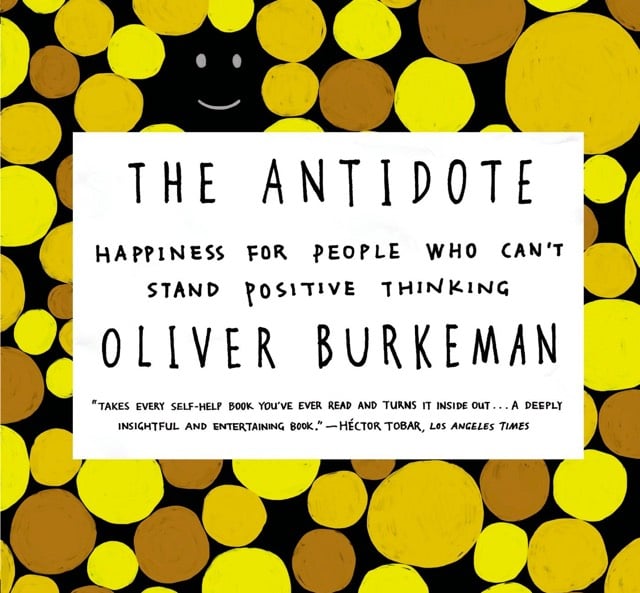Happiness for People Who Can’t Stand Positive Thinking

“Success through failure, calm through embracing anxiety…” This book sounds perfect for me. The Antidote: Happiness for People Who Can’t Stand Positive Thinking by Oliver Burkeman.
Self-help books don’t seem to work. Few of the many advantages of modern life seem capable of lifting our collective mood. Wealth — even if you can get it — doesn’t necessarily lead to happiness. Romance, family life, and work often bring as much stress as joy. We can’t even agree on what “happiness” means. So are we engaged in a futile pursuit? Or are we just going about it the wrong way?
Looking both east and west, in bulletins from the past and from far afield, Oliver Burkeman introduces us to an unusual group of people who share a single, surprising way of thinking about life. Whether experimental psychologists, terrorism experts, Buddhists, hardheaded business consultants, Greek philosophers, or modern-day gurus, they argue that in our personal lives, and in society at large, it’s our constant effort to be happy that is making us miserable. And that there is an alternative path to happiness and success that involves embracing failure, pessimism, insecurity, and uncertainty — the very things we spend our lives trying to avoid. Thought-provoking, counterintuitive, and ultimately uplifting, The Antidote is the intelligent person’s guide to understanding the much-misunderstood idea of happiness.
I learned about the book from Tyler Cowen, who notes:
[Burkeman] is one of the best non-fiction essay writers, and he remains oddly underrated in the United States. It is no mistake to simply buy his books sight unseen. I think of this book as “happiness for grumps.”
Given Cowen’s recent review of Inside Out, I wonder if [slight spoilers ahoy!] he noticed the similarity of Joy’s a-ha moment w/r/t to Sadness at the end of the film to the book’s “alternative path to happiness and success that involves embracing failure, pessimism, insecurity, and uncertainty”. Mmmm, zeitgeisty!





Stay Connected